Few people realise the extent to which Putin's regime has infiltrated France over the last 20 years. Political leaders such as Mr Sarkozy are just the tip of the iceberg. The whole of it is made up of well-known political figures, senior civil servants, pro-Russian influencers on social networks, right-wing party activists, almost all popular sovereignist intellectuals and all brands of anti-Semitic and anti-Zionist movements. It's an incredible rhizomic network that Moscow has put in place, capable of addressing both a communist boomer and a royalist tiktoker. Nowadays it is wholly self-sustaining, without the need for direct intervention from Moscow. Let's take a plunge into this protean world, whose players have only one thing in common: their impatience to seize power by any means necessary.
The case of Sarkozy should convince us that we must abandon all naivety towards those who make pro-Russian speeches:
Let's look at the "Sarkozy case" for a moment, as it is so edifying. In August this year, Nicolas Sarkozy made many headlines on the French news with his controversial remarks on Ukraine. In essence, the former French President argued in favour of a neutral Ukrainian state, a Russian Crimea and the organisation of referendums in eastern and southern Ukraine to decide whether they should belong to Moscow or Kiev. These referendums would be virtually impossible to organise, as the Russians would have to agree to withdraw from those lands for them to be held on a regular basis. How can you imagine for one second a free and transparent referendum taking place under the gunpoint of Russian soldiers who support the attachment of these regions to their mother country? You would have to be particularly naive to believe that Putin would allow the necessary contradictory debate to take place prior to any referendum. What's more, which populations would have the right to take part in this vote? The inhabitants of the region before 2014? 2022? The refugees who have fled? The thousands of Russians that Putin has moved in? Apart from the fact that these referendums would be an enormous headache to organise, it is impossible for Putin to allow them to take place in a free and transparent manner. He cannot risk losing these elections since this would be the beginning of the end for his regime. This proposal by the former French President can only lead to a freeze in the conflict and Vladimir Putin cashing in his territorial gains without further damage. And Nicolas Sarkozy cannot ignore this.
For our part, we cannot ignore the fact that Mr Sarkozy has signed contracts with Russian funds, notably for a conference in Russia where he extolled the virtues of Vladimir Putin (€300,000) and legal advice (€3,000,000). As President, he pushed through the sale of the Mistral landing ships to Russia (if François Hollande hadn't opposed this, Russia would have been able to take Odessa thanks to them) and the sale of the headquarters of Météo France to Moscow to turn it into an Orthodox cathedral. Not only did this decision serve Putin's propaganda, making him the heir to the Tsars, protectors of the Orthodox Church, and the narrative of the return of Imperial Russia, but it also put, and still puts, France's vital interests at risk. The church is next door to the Palais de l'Alma, which houses a number of Élysée employees, including members of the President's cabinet and his private staff. Thanks to Sarkozy, the main holders of our country's secrets are housed next to a huge building designed and built by a regime made up of KGB officers. Given today's eavesdropping and interception methods, this is madness. Just knowing that the Chief of Staff left home in a hurry at two in the morning is vital information, and so is even the fact that his wife hasn't phoned him once a day for a week. And what can we say about Nicolas Sarkozy's 'African policy', which in reality has been particularly disastrous for France, but a real godsend for Russia? He has destroyed the last friendly ties we had on the continent by making African leaders understand that they were not friends, but business associates. As a result, they naturally put us in competition with the Russians. It was Mr Sarkozy who closed the advanced base at Birao, which had cost us virtually nothing but was of strategic importance as a veritable watchtower in the centre of Africa. The Russians jumped at the chance to turn it into a base for their military deployment and Wagner in Africa. From there, they can launch all their dirty tricks in the Sahel and throughout the French-speaking Africa. And I'm not talking about the French intervention in Libya, which was the trigger for the chaos in the Sahel, allowing Russia and pro-Russian governments to come to power in the sub-region. Or the fact that Mr Sarkozy allowed Mr Putin to get everything he wanted without damage after his aggression against Georgia.
We could consider that all this is simply the result of Mr Sarkozy's incompetence in international matters. But then, at the very least, this should disqualify him from giving his opinion on an issue as strategic as Ukraine. Yet even disregarding the facts, the dishonesty of his speech leaves us little doubt. First of all, Mr Sarkozy's argument is a complete rehash of the language used by pro-Russian influencers on social networks:
- Russia is far too powerful, and we must stop arming Ukraine, because that would prolong the war and the suffering of the Ukrainian people.
- Anyone who wants to help Ukraine defend itself is a warmonger.
- Russia is not going to budge, so we are condemned to get along with it.
In practical terms, Mr Sarkozy is asking us to put pressure on the victim, Ukraine, so that it gives in to the demands of its executioner, Russia. This speech, which invites us to collaborate with Moscow for the greater benefit of the war criminal Putin, can only be described as pro-Russian by any honest man. Secondly, acceptance of his proposals would amount to total submission to Putin's demands. Yet Mr Sarkozy constantly refers to General de Gaulle, and even uses his so-called Gaullism as a basis for his pro-Russian argument. Yet General de Gaulle is the undisputed symbol of resistance to invasion, of refusal to submit to the law of the strongest. And he was prepared, as Churchill said, to fight everywhere, in the air, on the sea, inland, in the fields, streets and beaches. On the contrary, the antithesis of the General, Pétain, faced with a superior force, advocated submission, negotiating with the invader so that he could enslave us with our agreement. Exactly what Nicolas Sarkozy is proposing. Given his background, the former French president is perfectly capable of understanding this incredible contradiction, because it is so simple. At this level, it cannot be mental confusion; it must be bad faith engendered to protect a powerful interest. It is obvious that his supposedly Gaullist speeches are in fact propaganda for the interests of a hostile foreign power: Russia.
Alas, Nicolas Sarkozy is not the only one to serve the pro-Russian narrative in France or to have benefited from Russia's largesse. You have to realise that in addition to Nicolas Sarkozy, there is François Fillon, a former Prime Minister, and all the main right-wing presidential candidates in France over the last 15 years have had a link of interest with Putin's regime and had at one time or another propagated his narrative. The left has not been spared either: just take Jean-Luc Mélenchon (leader of the radical left), Ségolène Royal (former Socialist Party presidential candidate) or even Mr Chevènement (former Minister of the Interior, leading figure of left-wing sovereignism in France and adviser to President Macron). And I'm not even mentioning, for lack of time, the second-rate elected representatives on all sides of the political spectrum who for the past 15 years have been showering the French population, with impunity, with false information from the Kremlin. Nor the French press tycoons who have links with Russia, such as the Czech billionaire whose main income has depended on Russian gas, who owns more and more French press titles. One of them is the magazine Marianne whose director Mme Polony, a well-known sovereignist, also carries the same pro-Russian and even pro-Russian gas rhetoric wherever she can. You can find all this information, with a little effort, but quite easily, in the press. On the other hand, it is harder to find information about Russian networks within the French administration.
A nest of Russian agents or incompetents within the French administration?
In France, politicians, intelligence services, the overwhelming majority of our diplomats and leading experts saw nothing coming and were totally convinced that the Russians would not attack Ukraine. Worse, they still don't understand what happened. For the French intelligence services, there are three possible explanations for this blindness. Firstly, there may simply be a problem of level. I'm always amazed at the number of prejudices and stereotypes about Slavic countries that senior French civil servants and senior officers subscribe to, and the fatuity with which they trot them out. Yet, in defence of the French intelligence services, it has to be said that they concentrated a great deal on Africa and jihadism and relied on the analyses of their German counterparts when it came to Eastern Europe. Given Germany's pre-war benevolence towards Putin's regime, it is not impossible that the German services provided only appeasing analyses to the French services. Above all, a number of pro-Russian think tanks, whose sources of funding are obscure, have flourished in France in recent years. Many of them have taken on French generals and intelligence directors. Given their limited intellectual background in the field and the thirst for recognition that often goes with their occupation, it has surely been easy to get them to repeat the Russian narrative - a narrative they were spreading until a few months ago in the mainstream media and continue to do so on social networks.
Take the example of the "Centre Français de Recherche sur le Renseignement" (CF2R) run by Éric Denécé, a former intelligence officer in the French Navy, and then in the General Secretariat for Defence and National Security. Despite a discourse so pro-Russian that it would make Putin himself blush, he was the guest of all the media. The latter presented him as an expert, though he first accused the Americans (before the Russian invasion) of "staging a Russian threat and aggression that do not exist". Then, at the end of March 2022, he called on Volodymyr Zelensky to "apologise for having instigated the conflict in Ukraine and contributed to the extermination of its population". Within the CF2R, you will find a number of "experts" who are regulars on TV, radio and social networks. One example is Colonel Jacques Baud (Switzerland), a former member of the Strategic Intelligence Service, who will be heard to say: "there were never any Russian troops in the Donbass before 23-24 February 2022, and Moscow was not arming the separatists". But the very sources quoted by Mr Baud say quite the opposite, that many of the founding leaders of the separatist republics in 2014 were not even born in Donbass. They are Russians such as the famous Russian war hero Igor Guirkine "Strelkov". Born in Moscow, he never lived in the Donbass before 2014. In 2014, in Ukraine, he was the commander of the GRU, the Russian military intelligence service. He organised the armed rebellion of the separatist republics and even became Donetsk's first Defence Minister. The same profile, background and itinerary apply to Mr Chetsov, the Minister for Security. Or to Mr Boradai, the Prime Minister of the Donetsk Republic...
Then you have Alain Juillet, former Director of Intelligence at the General Directorate of External Security and former employee of Russia Today, who unashamedly pours out the Kremlin's narrative on social networks. Christophe Gomart, former Director of Military Intelligence, has recently left the CF2R. But that didn't stop him from doing a YouTube programme with Alain Juillet in which the most 'down-market' Russian propaganda fake news was given the pride of place. We also have Pierre Lellouche (a former minister under Nicolas Sarkozy) who, a few months ago, put on exactly the same pro-Russian circus act as Nicolas Sarkozy on TV, with the same arguments.
Here are a few more names, though I can't mention them all: Alain Chouet, former Head of the Security Intelligence Service (SRS) at the Directorate-General for External Security (DGSE); Air Force Brigadier General Pascal Legai, former Commander of the DRM's Centre de Formation et d'Interprétation Interarmées de l'Imagerie (CF3I) (2004-2006), former Director of the European Union Satellite Centre and 'Senior Advisor' to the Director of the European Space Agency ; or Colonel Igor Nicolaevich Prelin (Russia), a veteran of Soviet intelligence who served his entire career (1962-1991) in the KGB, where he successively held positions in the Counter-Intelligence Service, the Intelligence Service (Guinea, Senegal, Angola), the Intelligence School - where he was Vladimir Putin's instructor - and as press officer to the last President of the KGB, General Krioutchkov.
As for the lamentable failure of our diplomats and experts, it may be that they were fooled by the Russian elites (who know how to be particularly charming, cajoling, affable and friendly). At the same time, all they had to do was visit a Russian bookshop or watch Russian TV to realise that the regime was rehabilitating Stalin, preparing the Russians for war against Ukraine and making its people believe that NATO wanted to destroy them. How could they fail to see that the gang of KGBists in power in Russia were in fact old Cold War soldiers waiting for just one thing: the opportunity to take their revenge? Yet France has diplomats who have encyclopaedic knowledge of Russia, who are frankly astonishing in their reasoning, but who are unfortunately wrong almost all the time, like Jean de Gliniasty. This former French ambassador to Moscow, a connoisseur of Russian culture and history and an expert on TV, is Director of Research at IRIS, specialising in Russian issues. IRIS (Institut de Relations Internationales et Stratégiques) is THE major French think-tank on geopolitical and strategic issues. Although it has received millions of Euros of public money and its income comes essentially from ministries (particularly the Ministry of Defence) and public bodies, its accounts are not public. Its boss is Pascal Boniface, who, like Mr de Gliniasty, makes fairly neutral comments on the mainstream media, but goes on a rampage on YouTube spreading the Russian narrative either directly or via guests. In November 2014, after the organisation he heads had been cited in investigations on the Russian influence network published by the newspaper Libération, Pascal Boniface refused to allow the daily to publish the interview he had given them about IRIS funding. Pascal Boniface organises, notably via IRIS, events and conferences with the Franco-Russian Dialogue and its leaders, Thierry Mariani (under investigation for corruption in connection with Russia) and Vladimir Yakounin, who have been important channels of Kremlin influence in France. To return to Jean de Gliniasty, in 2015 he said that the Europeans should have "given" Sevastopol to Crimea and that Crimea had "always been Russian". On 11 March 2021, presented as an expert, he told the TASS agency that "The Sputnik V vaccine is an exceptional scientific, medical and geopolitical achievement by Russia". This great "impartial expert" on the "Russian world" never saw the invasion of 2022 coming. On 7 February 2022 (2 weeks before the invasion), he declared on a French TV channel that he "doubted" there was any threat from the Russians and that it was all just "posturing" before a negotiation, then went on to unfold the Russian narrative that nobody was suspicious of at the time.
All these people played an active part in spreading the Russian narrative in the media, French political circles and Parisian lounges. Imagine the number of people intoxicated by these generals, intelligence directors and diplomats at conferences, training courses or simply by talking to their colleagues. It's staggering. But Russia hasn't just infiltrated the French elites, it has managed to pre-empt 90% of all the non-progressive elements in France: its intellectuals, its influencers, its media and the cadre of right-wing party activists and part of the radical left."
Russia Today, the channel that converted those disappointed by the mainstream to the Russian narrative.
Designed to impose a Russian narrative, with no limits on lies, in order to conceal, prepare and justify the Kremlin's misdeeds, Russia Today France's strategy of influence has been built on the divisions in French society and on a major flaw in our democracy: the crisis of pluralism in the mass media, which have developed a form of authorised thinking on subjects that are crucial for many French people, such as mass immigration, Islam, gender theories and the downgrading of France.
All journalists, intellectuals and editorialists who refuse to promote immigration or gender theories have gradually been excluded from the mass media in France. Russia Today was thus able to capture the non-progressive Tout-Paris, who did not have much choice if they wanted to make a living from what they thought. In particular, it targeted the many French people who were caricatured and even insulted in the public media because they voted RN, were practising Catholics, complained about the growing insecurity linked to mass immigration, or were worried about the institutionalisation of gender theories. These French people found a channel that listened to them in Russia Today. They saw it as a dissident medium, exposing the truth that the mainstream refused to broadcast. Having finally found a medium that, in their eyes, dealt honestly with information on subjects of prime importance to them, they put all their trust on secondary subjects that they had not mastered, such as Russia, in that medium.
Russia Today has thus captured that non-progressive audience and its influencers, to the point of making them captive, by polarising and increasing the divisions between the French on subjects excluded from adversarial debate in France. It has staged a vision of the world that exaggerated France's weaknesses and promoted an imaginary Russia, the last bastion of morality and beauty. The influencers behind this new narrative, in direct opposition to the mainstream media, inspired confidence and new hope. Some French people began to judge the bona fides of an information source by its ability to produce a narrative that ran counter to that of the mainstream media. Alternative media and influencers targeting that clientele must not only produce content in opposition to that of the mass media, but also align themselves with the doxa imposed by Russia Today.
They have been trapped since the start of the war in Ukraine. Firstly, by the herd effect, by aligning themselves with the main opinion leaders 'made in' Russia Today. Then by mass-distributing the false information of Russian propaganda, each piece more delirious than the previous one, with pitiful photomontages and doctored videos. Now, to avoid making fools of themselves, they are obliged to continue their headlong rush. Worst of all, they have realised that predicting the end of the world on a daily basis and promoting the Russian narrative, as Russia Today used to do, is very profitable (see my article describing the business model of pro-Russian influencers on social networks: LINK).
"Pro-Russianism" has thus become the new political correctness in the non-progressive media. The pro-Russian ecosystem no longer even needs to be controlled or financed by the Kremlin; it is self-sustaining, with two nuances. Firstly, it is likely that the Russian troll factories are helping them to climb the trends, get likes and views in order to increase their pay and improve their ranking on YouTube. The more their content adheres to Russian propaganda, the more views and likes it will receive, which encourages them to go further and further. There is also a whole clergy responsible for updating the Russian narrative and its language.
The backbone of the "Russian Party of France"
Firstly, there are those I have been calling the "Putinolaters" since February 2022. This is a nebulous collection of small groups descended from the anti-Semitic far right and the anti-Zionist far left. The struggles of this nebula converge around a common enemy: the USA, and the same claimed objective: to reopen the Russian gas taps. This unnatural brotherhood of arms is the fruit of the hard work of one man: Alain Soral. He is a friend of Alexandre Douguine, the great Russian promoter of national-bolshevism and the main ideologue providing an intellectual framework for Russian imperialism. Alain Soral, who describes himself as "very pro-Putin", has prefaced the French translations of Douguine's works. The “Putinolaters”galaxy of national-revolutionaries, left-wing nationalists, right-wing nationalists, national socialists, national socialists and national-bolsheviks has virtually no electoral weight, but is ideologically very influential among sovereigntists and within the three main French right-wing political parties (Reconquête, RN and LR), as well as the leading left-wing party (LFI). The main influencers within this movement have interloping morals and share friendships, lovers and mistresses with a number of important figures within the former supporters of Jean-Pierre Chevènement and François Fillon, as well as with the entourages of Ms Le Pen and Mr Zemmour.
It is interesting to note that one of the great architects of Russian influence in France and a go-between for the National-Bolsheviks, sovereignists and the French Right was Alexander Orlov, former Russian ambassador to Paris. He was both the promoter of Alain Soral and a figure close enough to Eric Zemmour to be one of his two godfathers at the entrance to the most exclusive club in Paris: the "Cercle de l'Union Interalliée".
A priori, around 80% of politicians and key influencers who claim to be Gaullists are pro-Russian. I include among the pro-Russians those who call for "peace" in the manner of Miss Monde, which declares itself in favour of an end to famine and world peace. What kind of peace, and under what conditions, they are unable to say, but they always intervene in debates with the same language as Nicolas Sarkozy: they invariably call for an end to arming the Ukrainians, as this would prolong the war and therefore their suffering, and accuse those who want to help Ukraine of being warmongers.
Around 80% of the managers supervising activists on the ground (n-2 & n-3) in the two most right-wing parties (the RN and Reconquête) are also pro-Russian. Finally, 90% of influential people and popular intellectuals on the left and the non-progressive right are pro-Russian. This is a major strike force that goes relatively unnoticed because it is essentially presented en masse on social networks and in political parties. But we can see its influence in the polls, since it is, in order, the voters of Reconquête, RN, LFI (radical left) and LR (centrist and Gaullist right) who are least in favour of arming Ukraine, as well as young people (aged 35 and under). Yet can this Russian Party of France come to power?
Towards a French government in collaboration with Putin?
This hypothesis seems fairly unlikely today, but what about tomorrow? Firstly, it is not impossible, since there are already enough former French ministers and political leaders to set up a pro-Russian government in France, and even enough senior civil servants to serve it. Secondly, because from now on, in the event of an election, a right-wing candidate who wants to benefit from the support of the activists who run the campaigns on the ground can hardly declare himself in favour of Ukraine. We are currently seeing this with the primary campaign within the Republican Party in the United States. In order to secure the support of the party's most assiduous activists, many candidates have launched into a bidding war to see who will be the least favourable to the Ukrainians, and therefore indirectly the most favourable to the Russians. Admittedly, the Russian Party of France remains a minority in the French society for the time being. But at the same time Ukraine is not a priority issue for the French.
Above all, we cannot ignore the fact that crises in France are becoming increasingly frequent. They are occurring closer and closer to each other: "Bonnets rouges", "Nuit debout", "Gilets jaunes", various and sundry strikes, blockades against the "ransacking of the planet", demonstrations against pension reform, urban riots and so on. Yet the whole Russian set-up is built around Lenin's recommendation in his book "What to do", "to use all manifestations of discontent and to work out every last element of a protest, however embryonic". What's more, the pro-Ukraine political forces in France are made up of the so-called governing right and left, which have become ultra-minority forces. Only Macronism remains fairly powerful, but it is programmed not to survive Emmanuel Macron who, under the French constitution, cannot stand for re-election. Worse still, the only two major political figures on the left and right who are openly projecting themselves into the post-Macron era and starting to organise their troops are Ms Royal and Mr Sarkozy, who are pro-Russian.
Added to all this is the fact that the Russians are now in a position to control the African migration corridors and unleash waves of migrants in the Mediterranean through chaos. Imagine that before an important election Moscow launches a migratory tsunami (the attacks on the Polish border by Belarus using migrants in 2021 show us that this is not a science fiction scenario). Which parties would benefit? Those that are the most divisive ones on the subject, i.e. those that Moscow has been infiltrating from the bottom up for the past 20 years.
Let's imagine the worst-case scenario. Germany, faced with the bankruptcy of its energy policy, continues to sink into its economic doldrums, and German industrialists, squeezed by the cost of energy and a flagging Chinese economy, force their government to become neutral in the conflict. This would be the first breach in European unity by the EU's most important country. In order not to remain isolated, Berlin would immediately put into action its numerous Parisian networks of influence, particularly in the mainstream media and NGOs. At the same time, in France, the country is becoming ungovernable due to the absolute chaos of riots, strikes and migratory pressure, forcing Emmanuel Macron to announce early legislative elections. Macron, who has been weakened not only by the chaos he has been unable to control, but also by the fact that he cannot stand for re-election, has no leader in his party capable of running such a campaign. Faced with him, the main political forces will be the parties least favourable to Ukraine. In such a situation, there will be a premium for candidates who have built their image on order, such as Nicolas Sarkozy, and who reassure the electorate through their experience, such as Nicolas Sarkozy again. Those who point out his irresponsible stance on Ukraine will immediately get the retort: "And the Germans, are they irresponsible and incompetent? That's new...". All the "experts" in the pro-Russian think-tanks and their senior civil servants will construct a storytelling that makes Mr Sarkozy a providential statesman. The influencers on the social networks will round up all the outcasts of progressivism and the militant cadres of the right will make him their hero. The mass media's unanimous support for Ukraine will be shattered by Germany's switch to neutrality, with a good quarter of mainstream journalists calling for a rapprochement with Berlin to "give peace a chance" and praising the Chirac-Schröder-Putin trio's time against the US war in Iraq. As well as proposing to follow Germany in its neutrality, I wouldn't even be surprised if Mr Sarkozy, "faced with the imminent dangers to the Nation", called for a government of national unity with his former opponent, Mrs Royal, and a new, very close European union with Berlin. It's a worst-case scenario, but as Raymond Aron once said, "history is tragic".
Read also
Country Report: France, February 2023
Throughout February, France has been gripped by the "Pierre Palmade" affair, named after a famous comedian and showbiz star known to all French people. On 10 February, his car violently collided with another car whose passengers were a six-year-old boy, his father and his sister-in-law, a young pregnant woman.
Patrick Edery
Questions from Poles to a Frenchman ahead of their referendum on immigration
In the eastern countries of the EU, France has become the poster child of what not to do when it comes to immigration.
Patrick Edery
Towards a 3rd World War or a 2nd Cold War?
It seems increasingly difficult to deny Huntington's claim about the clash of civilisations.
Patrick Edery
Hamas is on the verge of handing Putin a strategic victory
In my September report (LINK), I explained how Moscow had regained the upper hand in the media, thanks in particular to the campaign launched by Nicolas Sarkozy, and then to the shady game played by Berlin.



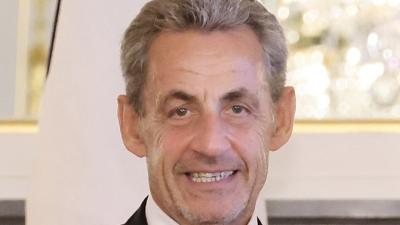

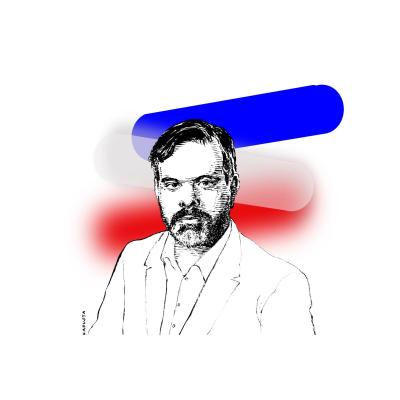
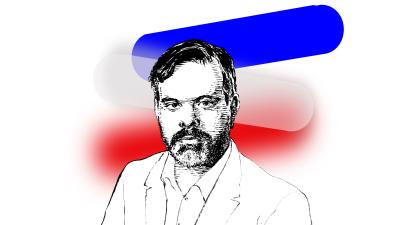

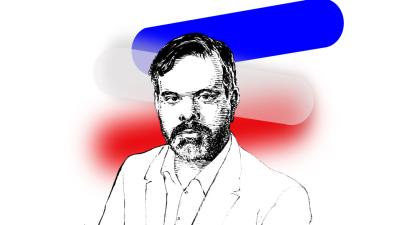

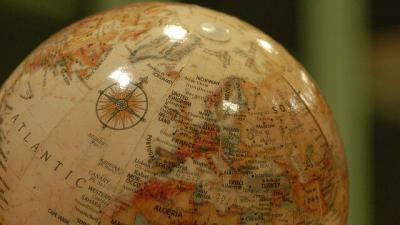

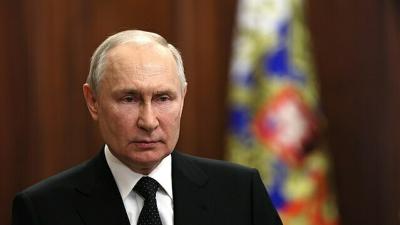

Comments (0)